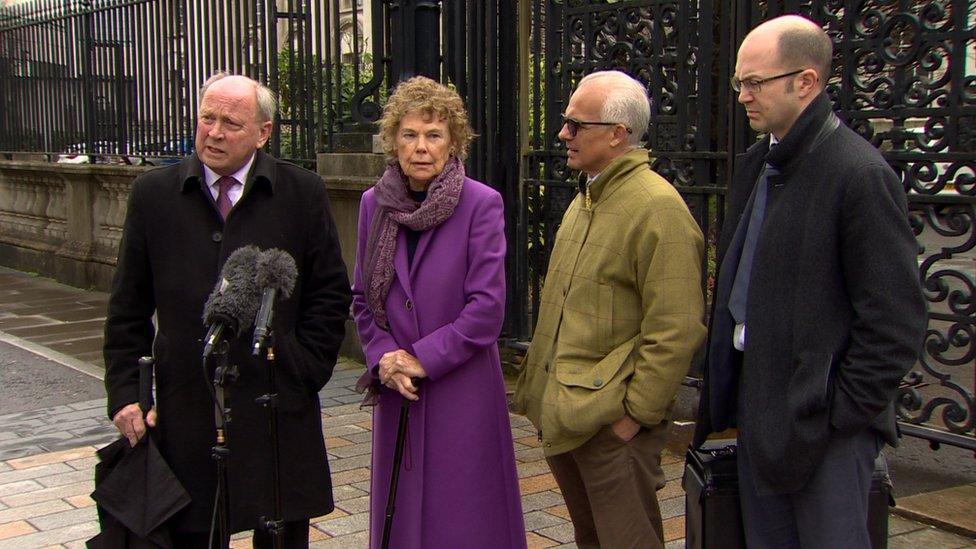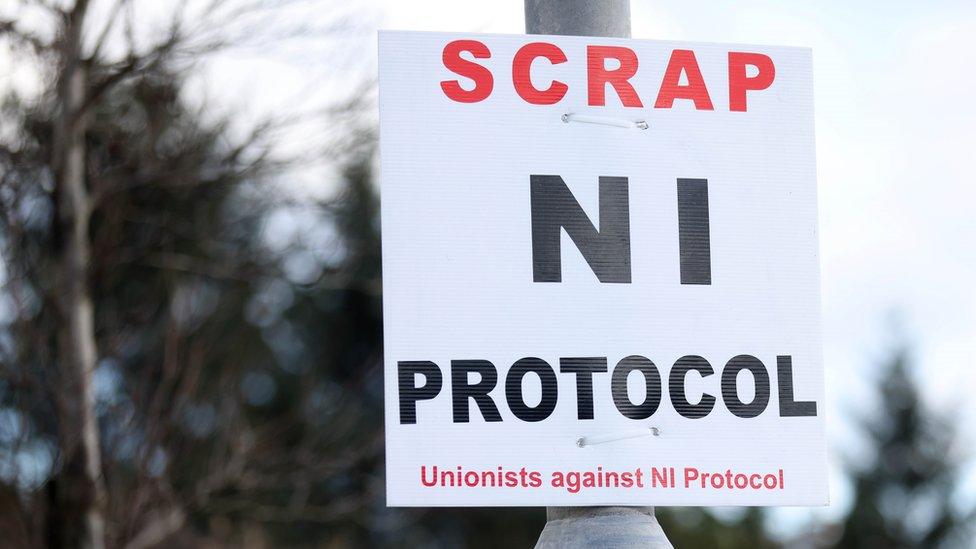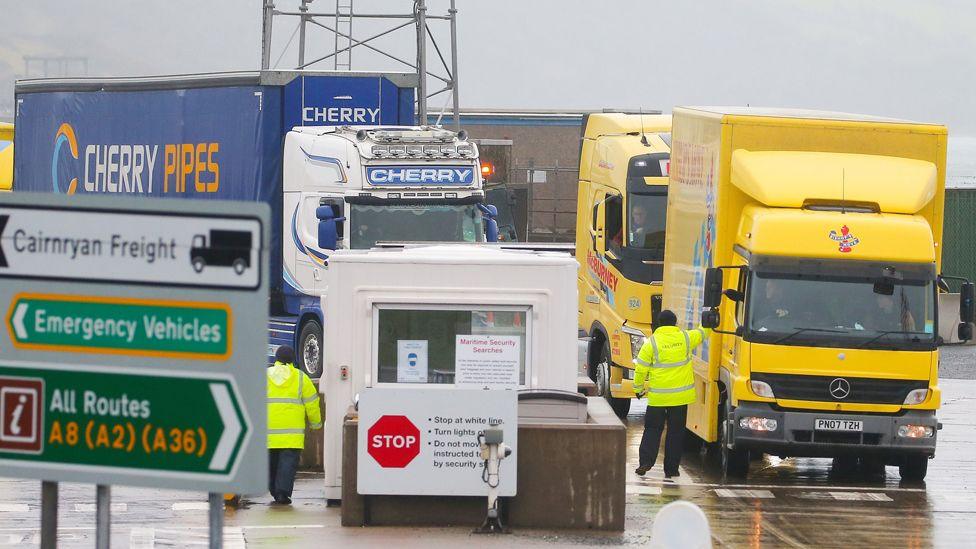Brexit: Northern Ireland Protocol is lawful, court rules
- Published
- comments

The Court of Appeal rejected the challenge on all grounds
The Northern Ireland Protocol is lawful, the Court of Appeal in Belfast has ruled.
A group of unionist politicians had challenged the protocol in judicial review proceedings, claiming it was unlawful because it conflicted with the 1998 Good Friday Agreement and the Acts of Union.
But the court rejected their challenge on all grounds on Monday.
The case was an appeal of a ruling delivered by the High Court last year.
The protocol was agreed by the UK and EU to ensure free movement of trade across the Irish land border after Brexit.
The court found the Withdrawal Agreement Act, which includes the protocol, did conflict with the 1800 Acts of Union in respect of free trade between Britain and Northern Ireland.
However, the court added the Withdrawal Agreement lawfully modified the Acts of Union.
The lady chief justice said the Acts of Union had not been repealed but one section, Article 6, now has to be read subject to the Withdrawal Agreement Act.
The court also rejected the argument the protocol had changed the constitutional status of Northern Ireland as defined in the Good Friday Agreement.
Furthermore, the court found that the Northern Ireland secretary did have the power to change Stormont's usual cross-community voting mechanism.
Will of Parliament
Normally, Stormont must approve controversial issues by a cross-community vote, but the protocol will be subject to a straight-majority vote.
The court found the Northern Ireland secretary had the power to do this on two grounds: that it was necessary to reflect the will of Parliament in implementing the Withdrawal Agreement Act and that it concerned international relations, which is not a devolved matter.
Further areas of challenge concerning human rights law and EU law were also rejected.
The court dismissed the appeal, affirming the decision of the High Court and summarised its core findings here., external
'Consent principle is a con'
Jim Allister, leader of the Traditional Unionist Voice (TUV) party, was one of the politicians involved in taking the case and he said they were preparing for a further challenge.
Speaking outside court, he said: "For us, the Court of Appeal was only ever a staging post to get these key constitutional issues to the Supreme Court, which is the ultimate authority in the United Kingdom."

TUV leader Jim Allister (left) and Baroness Hoey were among those behind the appeal
Mr Allister said there were "two takeaways" from the Court of Appeal hearing which were important to the case.
The first, he explained, was "confirmation that the key Article 6 of the Acts of Union - which is supposed to guarantee us the same footing in terms of trade as part of the economic union that is the United Kingdom - that that key provision, Article 6, has been subjugated by a protocol to which no-one in Northern Ireland has ever been asked or has ever consented, and that's a fundamental issue of constitutional importance".
"And the second takeaway for us is, that the much-vaunted consent principle of the Belfast Agreement is a con, it means nothing. It applies only to the final handover of the title deeds of Northern Ireland.
"That meantime, you can salami-slice the union out of existence, such as this does; you can hand away powers to make the laws of Northern Ireland to a foreign jurisdiction and the people of Northern Ireland are never asked, nor do they ever have to consent.
"Now on those two issues of course, we will be going to the Supreme Court where we believe that the issues will be addressed in a manner that befits the fact that they are of fundamental constitutional importance."
Related topics
- Published2 February 2024

- Published30 June 2021

- Published30 November 2021

- Published29 November 2021
